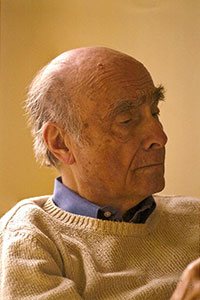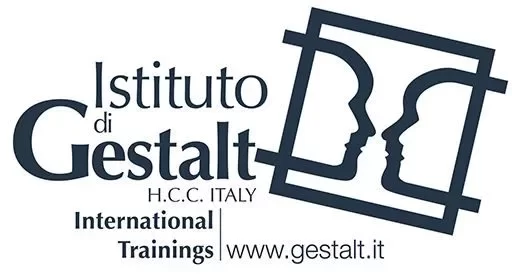
ErvingPolster ha ricevuto il dottorato di ricerca dalla Western Reserve University nel 1950. Nel 1953, è diventato studioso dei principi e dei processi della psicoterapia della Gestalt e nel 1956 ha cominciato a condurre seminari seguendo tale metodo. Nel 1958, è diventato il primo presidente del Gestalt Institute di Cleveland ed è rimasto in quella posizione fino al 1973, quando lui e sua moglie, Miriam, si trasferirono a San Diego. Lì hanno fondato il Gestalt Training Center-San Diego, dove per 25 anni hanno insegnato la terapia della Gestalt. A San Diego hanno condotto corsi di formazione frequentati da allievi provenienti da tutto il mondo. Polster ha effettuato molti viaggi a livello internazionale dal 1968, tenendo letture, workshop e presenziando a molte conferenze. Tra le sue migliori performance vi è quella di dimostrare i principi e le procedure attraverso le sedute di terapia dal vivo davanti ad un pubblico professionale.
Polster è co-autore, con Miriam Polster, di uno dei testi più letti di terapia della Gestalt, Gestalt Therapy Integrated (Terapia della Gestalt Integrata), pubblicato nel 1973 (edizione italiana, Giuffré, 1986). In questo testo loro arricchiscono il vasto range di innovazioni della psicoterapia della Gestalt, trasformando un set di procedure terapeutiche tecnicamente avanzato in un più umanistico apprezzamento di come le persone possano migliorare le relazioni, espandere la consapevolezza ed essere aiutate a sperimentare nuovi comportamenti.
Polster ha anche scritto Every Person’s Life Is Worth a Novel (Ogni Vita merita un Romanzo. Quando raccontarsi è terapia. Astrolabio, Roma, 1988), nel quale illustra il legame che vi è tra il romanziere e lo psicoterapeuta. Infatti uno dei punti di vista del libro si basa sul fatto che le storie create dai romanzieri siano tratte da un background di ordinaria umanità.
Questa fonte di storia e rivelazione ha molto in comune con lo sfondo personale, dal quale i terapeuti evocano le storie dai loro pazienti. Con l’evocazione di queste storie, le persone sono portate a riscoprire l’importanza degli eventi e delle caratteristiche trascurate, ripristinando il valore del sé. In un certo senso, loro hanno già quello che stanno cercando, ma non lo sanno.
Il suo successivo libro è stato A Population of Selves, pubblicato nel 1995, in cui esplora i mezzi attraverso i quali stabilire l’identità personale. Il suo ritratto della varietà dei sé fornisce alle persone una base per sperimentare la loro gamma interna di caratteristiche,e unirle per sentirsi una identità affidabile.
Un altro libro, From the Radical Center, è un’antologia che ripercorre l’evoluzione delle idee che lui e Miriam Polster hanno presentato in oltre 45 anni nelle loro conferenze, workshop, articoli di giornale e stralci di antologia. Nel 2006, ha scritto Uncommon Ground: Harmonizing Psychotherapy and Community, nel quale traspone il modello medico tipico della terapia tradizionale nel setting dei grandi gruppi. La visione del libro è quella di raggruppamenti che accompagnano le vite delle persone, guidati da esercizi mirati, progettati al fine di migliorare l’attenzione agli aspetti comuni di come le persone possono vivere la loro vita al meglio.
English:
Erving Polster received his Ph.D. degree from Western Reserve University in 1950. In 1953, he became a student of the principles and procedures of gestalt therapy and in 1956 began to conduct workshops in the method. In 1958, he became first faculty Chairman of the Gestalt Institute of Cleveland and remained in that position until 1973, when he and his wife, Miriam, moved to San Diego. There they formed the Gestalt Training Center-San Diego, where for 25 years they taught gestalt therapy. People came to San Diego from all over the world to attend their training programs. He has traveled internationally since 1968, giving lectures and workshops and presenting at conferences. One of his unique offerings is to demonstrate the principles and procedures through live therapy sessions in front of professional audiences.
Polster is co-author, with Miriam Polster, of a widely read text in gestalt therapy, Gestalt Therapy Integrated, published in 1973. In it they provide an integration of the wide-ranging innovations of gestalt therapy, transforming a technically advanced set of therapeutic procedures into a more humanistic appreciation of how people may improve relationship, expand awareness and be helped to experiment with new behaviors.
He also has written Every Person’s Life Is Worth a Novel, spelling out the kinship between the novelist and the psychotherapist. One of the book’s perspectives is that the stories created by novelists are extracted from a background of ordinary humanity. This source of storyline and revelation has much in common with the personal background, from which therapists evoke stories from their patients. By the evocation of these stories,peopleare led to rediscover the importance of neglected events and overlooked characteristics, restoring self-value. In a sense, they already have what they are seeking; but they don’t know it.
His next book was A Population of Selves, published in 1995, in which he explores the means for establishing personal identity. His portrayal of a variety of selves provides a base for people to experience their internal range of characteristics while joining these characteristics together to feel a dependable identity.
Another book, From the Radical Center, is an anthology that traces the evolution of ideas that he and Miriam Polster have presented over a 45-year period in their lectures, workshops, journal articles and anthology pieces. In 2006, he authored Uncommon Ground: Harmonizing Psychotherapy and Community, transposing the medical model of office therapy into large group formats. The book envisionsthe creation of lifetime assemblages of people, guided by designed exercises targeted to enhance attention to the common aspects of how people may best live their lives.
